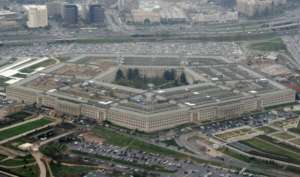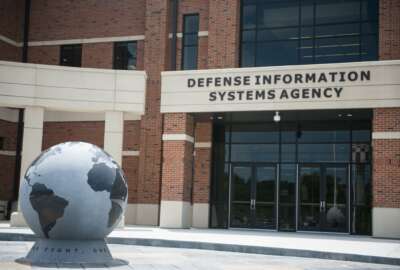
DoD picks SAP to replace Defense Travel System
The Pentagon is using its Other Transaction Authority for "nontraditional" contractors to replace the Defense Travel System. But the recipient is a Fortune 500...
The Defense Department has selected a new vendor to overhaul and replace the aging and widely-reviled IT system military personnel use to book airline flights and make other travel arrangements, the Pentagon said Thursday.
 DoD issued a $9.3 million other transaction agreement (OTA) to SAP Concur to build a prototype that will eventually take the place of the current Defense Travel System (DTS), which processes nearly $9 billion in travel spending each year.
DoD issued a $9.3 million other transaction agreement (OTA) to SAP Concur to build a prototype that will eventually take the place of the current Defense Travel System (DTS), which processes nearly $9 billion in travel spending each year.
Concur is a subsidiary of the global software giant that focuses primarily on delivering travel and expense management as a service, a model that lines up with what Pentagon officials had previously said they wanted: a commercial “travel-as-a-service” offering to replace the government-owned systems that currently make up DTS.
In a news release Thursday evening, DoD said the company would team with several other firms to build the DTS replacement: Accenture Federal Services, Booz Allen Hamilton and CWTSato Travel.
Current DTS structure a mish-mash of sorts
Although the department characterized the work the companies will perform as a “prototype,” the OTA allows them up to two years to deliver it. Defense officials declined to predict when any new capabilities might actually come online and become available for use by DoD employees.
DoD has been angling for a solution that could replace DTS for several years. The present structure involves a mish-mash of systems that require complicated interconnections between private travel management companies delivering ticketing services and individual military services’ personnel and finance accounting systems.
The current iteration is being maintained under a $143 million task order the government issued to Northrop Grumman in 2013. The same firm has served as the main systems integrator for DTS since its inception in 1998.
Without providing details, the Pentagon asserted Thursday that the new arrangement would dramatically simplify the system and “exponentially” reduce DoD’s travel spending, including by cutting the number of labor hours its staff expends on travel administration by 10 million per year.
“In addition to reducing overall costs, the new capability must reduce process and workflow complexity, decreasing the time and effort spent by travelers, authorizing officials, and administrators planning travel and reimbursing travel expenses,” the department said in a statement. “It must also meet the department’s audit readiness requirements, improve customer satisfaction, and align to commercial/industry best practices.”
The new award builds on previous efforts by the Defense Digital Service, which took on the defense travel problem as a pilot project soon after the organization was first created by former Defense Secretary Ashton Carter.
“[DoD] is not in the business of building travel products,” Chris Lynch, DDS’s director told Federal News Radio last summer. “We are not special, we are not unique, we don’t need to own those things. But it should make sense and people should like using it.”
Replacement for DTS sought for years
But the department has been seeking a replacement for DTS since at least 2014. That, combined with the fact that the new vendors will have until 2020 to build an initial prototype appeared to raise questions about DoD’s decision to use its other transaction authority for the project.
OTAs, a longstanding feature of federal procurement, are generally meant to give agencies access to vendors who would not ordinarily be interested in doing business with the government because of its onerous procurement rules. They sidestep the Federal Acquisition Regulation, based, in part, on the presumption that the government will mostly use them for quick-turn research and development work.
Under current law, DoD can award work for OTA prototypes as long as a “nontraditional” defense contractor is participating in the project to a “significant extent.” In its statement on Thursday, the department asserted that SAP Concur is, in fact, a nontraditional defense contractor.
Latest Defense News
The Pentagon said it is too early to predict what its acquisition plans will be once the project finishes the prototype stage, but it might exercise its legal authority to award SAP another, larger OTA contract for a production system.
“At this time, the department is focused on ensuring the prototype successfully meets the 10 USC 2371b(f) requirements for transition to production,” said Lt. Colonel Mike Andrews, a department spokesman. “Once those requirements are met, the department may have the option to establish a production contract or other transaction with a participant in the prototype. However, the department has not decided at this time whether to use 10 USC 2371b(f) to transition to production.”
Thursday’s DTS award is the second instance in as many months in which the Pentagon has used OTAs to award work to long-established vendors in pursuit of IT modernization goals that were well-understood years beforehand.
The Defense Information Systems Agency employed a similar approach in July, when it issued a $49 million OTA to one of the government’s largest IT providers to construct a foundational component of the new National Background Investigations System.
In that case, defense officials also characterized the first deliverables under the project as a “prototype,” even though they are counting on the system to work in the real world and demonstrate initial operating capability for the NBIS project by this fall.
Copyright © 2025 Federal News Network. All rights reserved. This website is not intended for users located within the European Economic Area.
Jared Serbu is deputy editor of Federal News Network and reports on the Defense Department’s contracting, legislative, workforce and IT issues.
Follow @jserbuWFED
Related Stories






